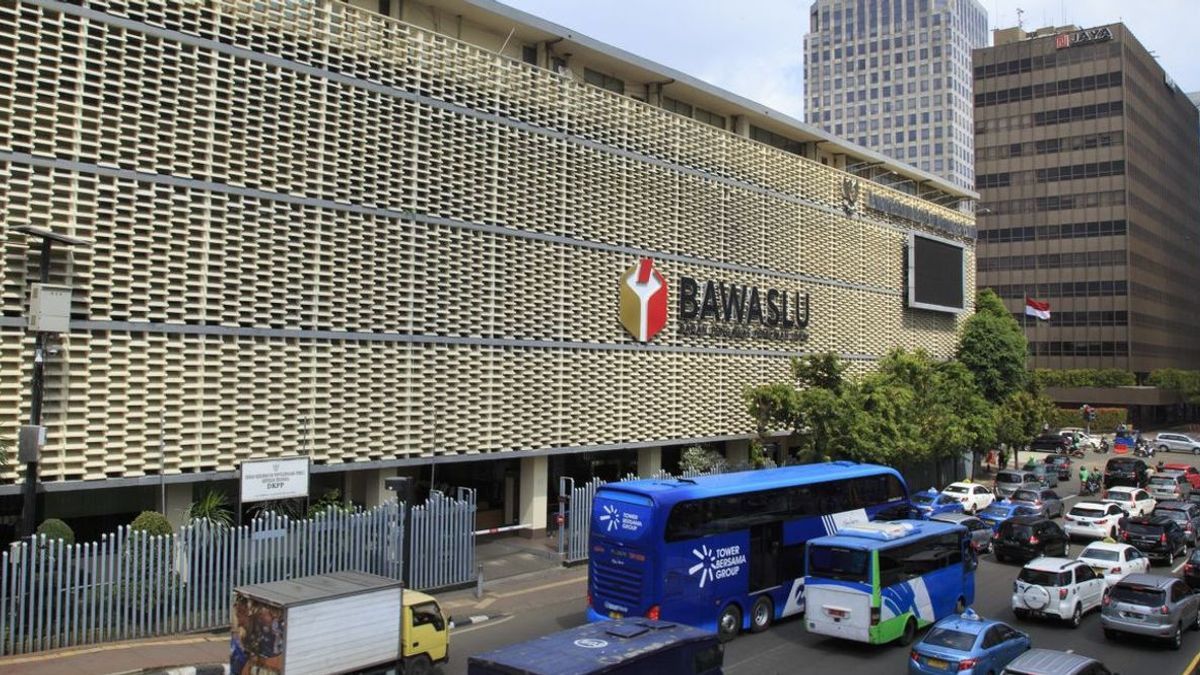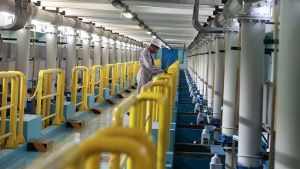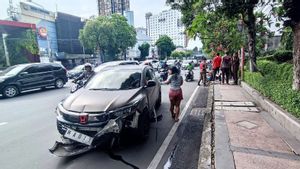JAKARTA - Chairman of the Election Supervisory Agency (Bawaslu) Rahmat Bagja said that the supervision of the implementation of the 2024 General Election carried out by Bawaslu had no problems related to the electoral system. "There is no problem (in supervision). Whether or not (the proportional system) is open, there is no problem for us. We carry out all monitoring of the implementation of the election stages. The system at this time is an open proportional system. This is what we monitor," said Bagja to reporters in Jakarta, Monday, February 20, confiscated by Antara. According to him, although there is a potential change in the electoral system from an open proportional system to closed, there is even suggestions for becoming an open-closed mixture, Bawaslu will work and act in accordance with the provisions regulated by Law Number 7 of 2017 concerning General Elections (UU Elections). "What is clear at this time is an open proportional system. We will base all Bawaslu actions and work on applicable laws," he said. Currently, the Constitutional Court (MK) is testing the material of the Election Law related to an open proportional system. If the judicial test is granted by the Constitutional Court, then the 2024 Election system will turn into a closed proportional system.
A closed proportional system allows voters to only be presented the logo of a political party (political party) on ballots, not the name of the party cadres who take part in the legislative election, he said. So far, there are various opinions in assessing which system can be the best system in organizing elections in the country. In addition, the Chairman of the MPR RI Bambang Soesatyo proposed implementing a mixed election system to end the debate about elections using open or closed proportional. "In order not only to dwell on open and closed systems, I offer a middle way to use open and closed mixtures, as is done in Germany," said Bamsoet, Bambang Soesatyo's nickname while attending the inauguration of the 98th National Unity Activist Graha (PENA) in Jakarta, Sunday 19 February.
He said the two systems each had shortcomings and advantages. For example, in an open proportional system, the positive side of the legislative candidate must work hard to win the hearts of the people so that it can encourage the closeness of the legislative candidate to the people. However, the system opens up opportunities for the use of money politics so that quality candidates who do not have capital are easily eliminated. Positive and negative sides have a closed proportional system. The positive side is that political parties have the authority to determine candidates so that quality candidates and cadres who have raised parties with capital can still enter parliament. Meanwhile, the negative side of the system is that the closeness of candidates to the people can not become strong because candidates seem more "terrasal" to parties than the people.
The English, Chinese, Japanese, Arabic, and French versions are automatically generated by the AI. So there may still be inaccuracies in translating, please always see Indonesian as our main language. (system supported by DigitalSiber.id)













